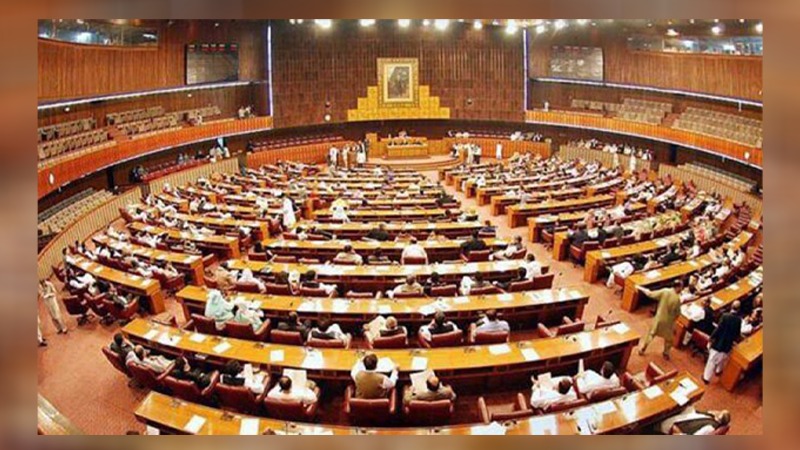The government introduced two contentious bills in the Senate on Monday, triggering a heated debate just days ahead of the Pakistan Tehreek-e-Insaf (PTI) party’s planned rally in the capital. The proposed legislation seeks to regulate public gatherings in Islamabad and increase the number of judges in the Supreme Court, sparking strong opposition from PTI lawmakers who view the moves as politically motivated.
The first bill, titled the “Peaceful Assembly and Public Order Bill 2024,” was presented by Pakistan Muslim League-Nawaz (PML-N) Senator Irfanul Haq Siddiqui. It aims to grant the district magistrate sweeping powers to regulate and even ban public gatherings in the capital. Under the bill, organisers of public events would be required to apply for permission at least seven days in advance, with the magistrate holding the authority to deny such requests if the gathering poses a threat to public safety, national security, or disrupts routine life.
The proposed law also allows the government to designate certain areas of Islamabad as “red zones” or “high-security zones,” where all public assemblies would be prohibited. The magistrate’s decision to permit or deny a gathering would be based on security assessments from law enforcement agencies. Violators of the law could face imprisonment for up to 10 years for repeated offenses.
Law Minister Azam Nazeer Tarar defended the bill, arguing that it was essential to maintain public order and safety. He noted that similar laws already exist in other major cities, such as Lahore. However, PTI leaders condemned the bill as a targeted measure aimed at curbing their party’s activities. PTI Opposition Leader Syed Shibli Faraz accused the government of trying to suppress dissent, labeling the bill as “PTI-specific” and “mala fide.”
The second bill, the “Supreme Court (Number of Judges) (Amendment) Act 2024,” was introduced by independent Senator Mohammad Abdul Qadir from Balochistan. This bill proposes increasing the number of judges in the Supreme Court from 17 to 20, excluding the Chief Justice. The move is intended to address the growing backlog of cases, which has surpassed 53,000, according to Senator Qadir.
The PTI opposed this bill as well, with Parliamentary Leader Syed Ali Zafar arguing that it was a ploy to install judges favourable to the current government. Zafar likened the proposal to “court-stacking,” a practice seen in other countries where governments have expanded the judiciary to secure favourable rulings. He criticised the government for focussing on the Supreme Court instead of reforming the lower judiciary, where delays are more acute.
In contrast, Law Minister Tarar urged the opposition not to politicise the issue, emphasising the need for more judges to expedite justice, particularly for prisoners on death row or facing life sentences whose appeals have been pending for years. He noted that the Constitution allows Parliament to determine the number of judges, making the proposed increase within legal bounds.
The Senate Chairman Yusuf Raza Gilani has referred both bills to the Standing Committee on Law and Justice for further consideration, with reports expected within the next two days. As the bills move forward, they are likely to remain a flashpoint in the ongoing political tussle between the government and opposition.
